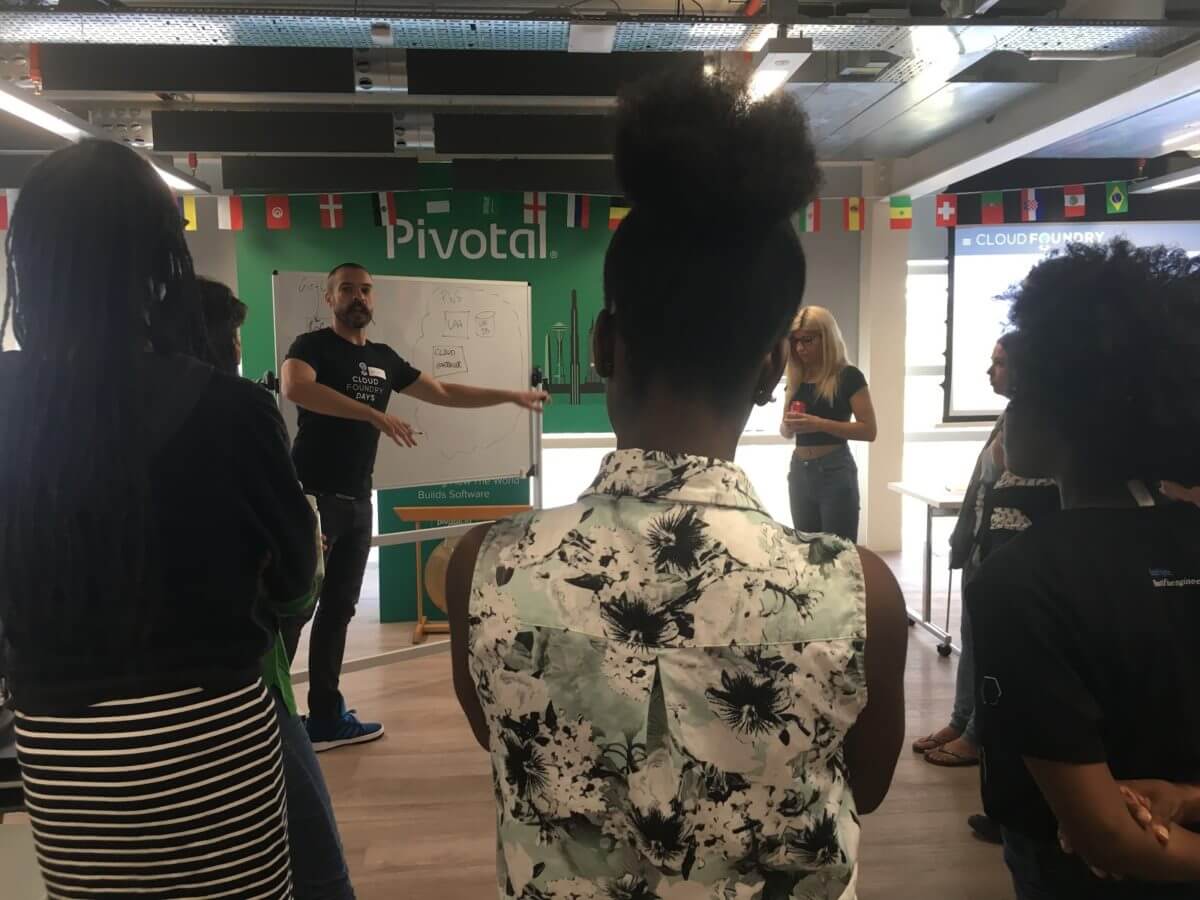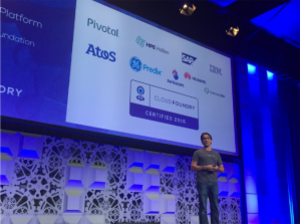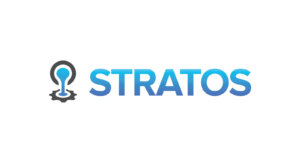This post was co-authored by Denise Yu and Paula Kennedy from VMware
On June 23, a group of software developers from non-traditional tech backgrounds gathered in VMware’s London offices to spend a day learning about Cloud Foundry. Daniel Jones (EngineerBetter) delivered the “Cloud Foundry for Beginners: Zero to Hero” workshop, with Sapphire Mason-Brown and Panos Xynos (also from EngineerBetter) and Jonathan Matthews helping out as teaching assistants, while Denise and Paula dashed around the building making sure that logistics ran smoothly.
Of the sixteen people who attended, none had ever pushed an application with Cloud Foundry before. Some attendees had encountered Cloud Foundry at work or heard about it from DevOps community meetups. The feedback that we received, in person, on social media, and in follow-up emails, was overwhelmingly positive:
“I enjoyed the training and our time together. Thanks for the opportunity as it contributes to my bootstrap tech education.”
“Belated thanks for the Cloud Foundry workshop – it was very useful and as always VMware and the facilitators were great hosts.”
“Thank you for a well served Cloud Foundry course. I certainly appreciate the organization with a great instructor and helpers… to refresh my software skills and understand better the developer ecosystem.”
“Materials and practical labs were well thought out and very useful.”
“Like that it wasn’t just a high level overview but Daniel took time to explain what was going ‘under the hood’ of Cloud Foundry.”
“Cloud Foundry is a great tool, and easy to get started. Daniel’s passionate delivery is a great plus!”
Why did we run this?
In November of 2016, Paula and Denise went for a coffee, and Paula told Denise about her vision: to deliver a Cloud Foundry training to a group of people who ordinarily wouldn’t be sent by their companies to Cloud Foundry Summit. By offering a community-oriented version of the “Zero to Hero” course that was already well-iterated from many Summits, we could lower the barrier of entry to platform development and in the process, bring people from different backgrounds into the Open Source Cloud Foundry community. More people bringing different viewpoints into the Cloud Foundry ecosystem means we are collectively more able to build software that is usable by everybody. Win-win!
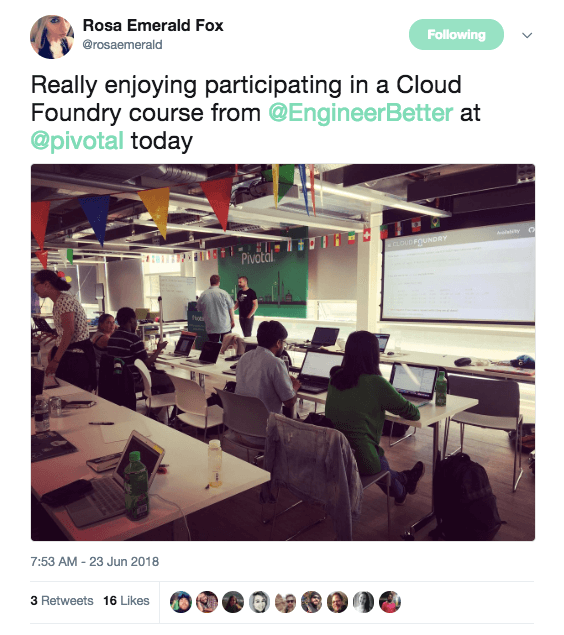 How did we do it?
How did we do it?
Once we found a Saturday in June that Paula, Denise and Daniel were all available (no easy feat!), we reached out to every London-based tech community that had diversity and inclusion as part of its mission. This included codebar.io, Coed::Code, Queer Code, UK Black Tech, and the Makers Academy and Founders and Coders alumni networks (software development bootcamps). We decided to cap the event at 20 people due to the hands-on nature of the course, and we received well over that number of applications over the course of six weeks.
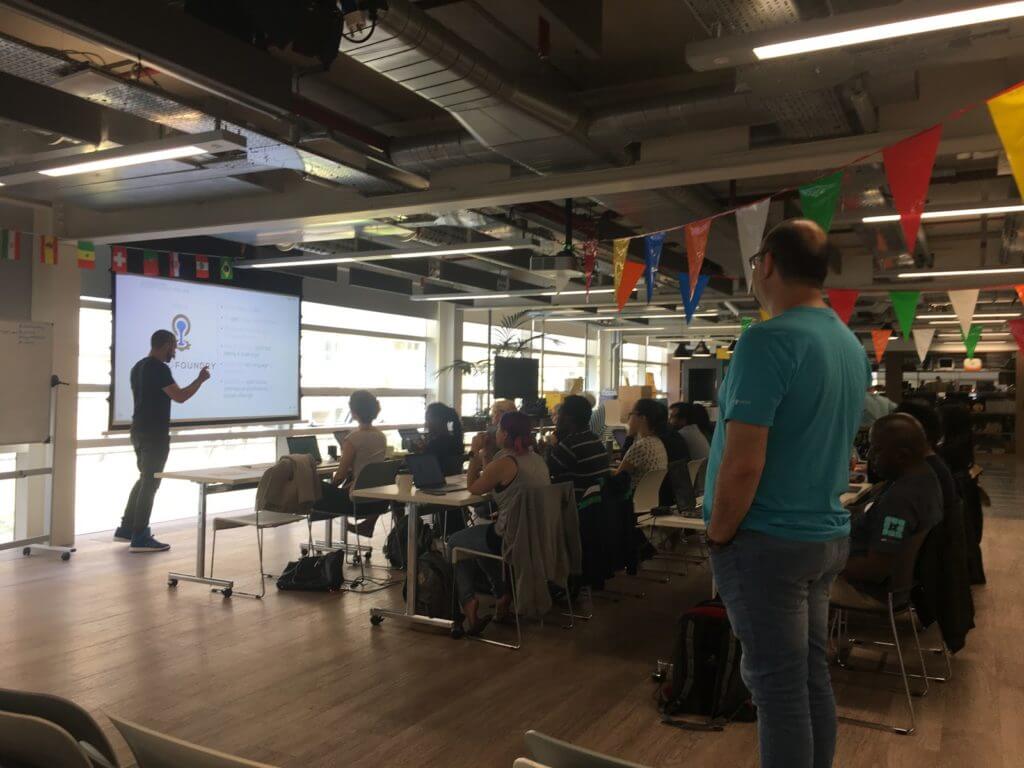 We managed the online application process using Google forms, and advertised the event through Meetup, Slack, etc. On the Meetup platform, we disabled RSVPs through the usual event sign-up workflow, instead posting the application form link as the first line of the description, to avoid ambiguity about how people could go about registering. In the event form, we asked all applicants for some basic information such as their contact information, dietary requirements and T-shirt size. We gave applicants the option to disclose if they belonged to an underrepresented background. Lastly, Paula recognized that for parents, sorting childcare is a barrier to entry, especially for events during evenings and weekends, so we gave applicants the ability to request childcare through the form as well.
We managed the online application process using Google forms, and advertised the event through Meetup, Slack, etc. On the Meetup platform, we disabled RSVPs through the usual event sign-up workflow, instead posting the application form link as the first line of the description, to avoid ambiguity about how people could go about registering. In the event form, we asked all applicants for some basic information such as their contact information, dietary requirements and T-shirt size. We gave applicants the option to disclose if they belonged to an underrepresented background. Lastly, Paula recognized that for parents, sorting childcare is a barrier to entry, especially for events during evenings and weekends, so we gave applicants the ability to request childcare through the form as well.
On the day of the event, we set up our event space classroom-style, with a projector and whiteboard for Daniel to draw architecture diagrams (see tweet below!).
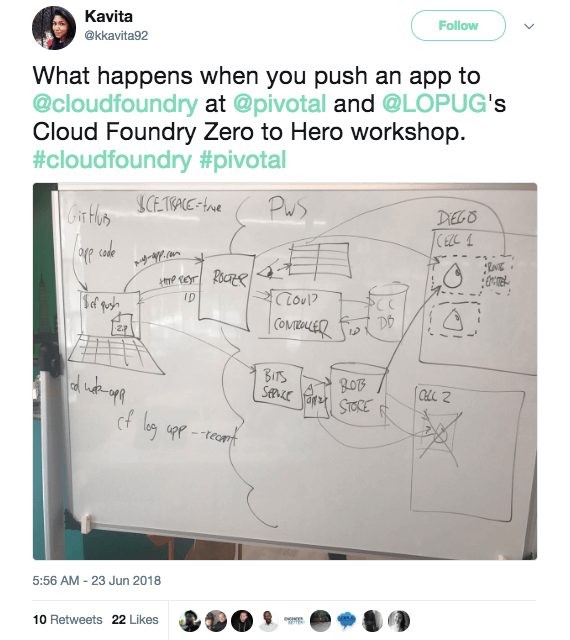 Denise believes strongly that caffeine and sugar are the two key components of productive learning, so we scattered the space with sweet treats and fruit, and made tea and coffee readily available. We ordered a healthy lunch and organised a (less healthy) afternoon snack of scones with clotted cream and jam, and concluded the day with a retrospective using Postfacto.
Denise believes strongly that caffeine and sugar are the two key components of productive learning, so we scattered the space with sweet treats and fruit, and made tea and coffee readily available. We ordered a healthy lunch and organised a (less healthy) afternoon snack of scones with clotted cream and jam, and concluded the day with a retrospective using Postfacto.
For more information about the course content, the full description and slides are available online. This course is usually run at Cloud Foundry Summit as a paid workshop during the first day of the conference. The course content is 100% open sourced, and maintained by EngineerBetter and the Cloud Foundry Foundation.
What’s next?
Running this workshop had an immediate benefit to VMware and EngineerBetter’s hiring prospects: In the one week following, at least four engineers from underrepresented backgrounds applied for jobs with us, either because they came to the workshop themselves, or because they heard about it from a friend who attended.
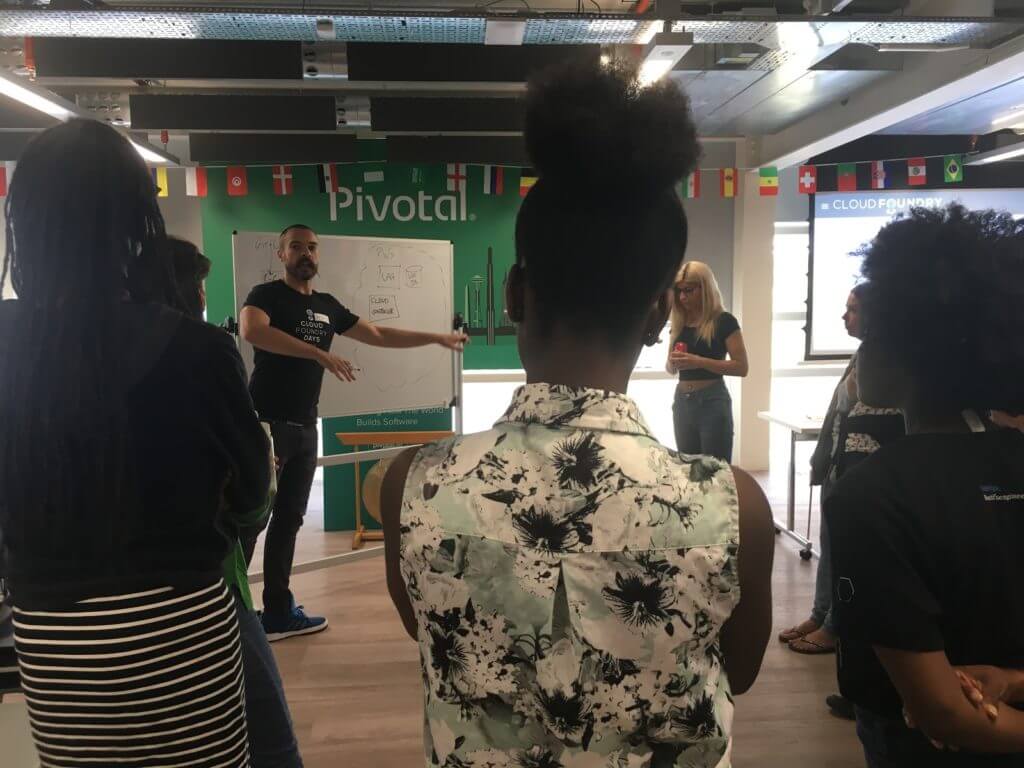 It is clear that there is appetite outside of the already-established Cloud Foundry communities for training courses that mix generalizable operations knowledge (ie. “what is blue-green deployment?”) with technology-specific implementations to see fast feedback (ie. “cf push”). We would love to see this experiment repeated in the future, although with Cloud Foundry EU Summit in Basel fast approaching, it is unlikely we will run this again in London before the end of 2018.
It is clear that there is appetite outside of the already-established Cloud Foundry communities for training courses that mix generalizable operations knowledge (ie. “what is blue-green deployment?”) with technology-specific implementations to see fast feedback (ie. “cf push”). We would love to see this experiment repeated in the future, although with Cloud Foundry EU Summit in Basel fast approaching, it is unlikely we will run this again in London before the end of 2018.
We are in the process of finalizing a document on how to pull together this training for other VMware offices and for other tech companies interested in delivering this course to a community-based audience. If you are interested, please reach out to [email protected] and [email protected] to learn more.
